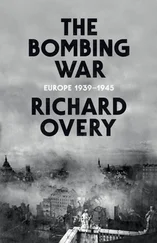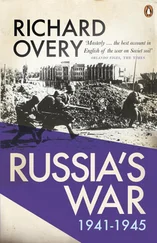All this added to the bitterness, not only towards the allies, but more importantly, of German for German. Disorder, faction, the occupation of the Ruhr by the French, a catastrophic inflation, a Soviet Republic in Bavaria and, between 1919 and 1922, 376 political murders, (356 by rightist extremists) told of the ruin of Germany. Ten years earlier, in 1912, Rupert Brooke, writing in Berlin, had parodied the orderliness of the German people 25; now chaos and paramilitary hooliganism stalked the streets.
The philosophical legacy of war for defeated Germany was thus essentially different from that in the west, particularly in Britain. Among the victors it had become ‘the war to end war.’ The generals were regarded as incompetent butchers, blundering fools, who were careless of the lives of their soldiers and indifferent to their suffering.
Flag-waving patriotism seemed to have been sullied by the conflict. The Roman poet’s contention, that it was fitting and proper to die for your country, was now called ‘the old lie.’ Socialist ideas gained ground, in which the true nature of man was held to be good and noble, but was everywhere sullied by a system of oppression and exploitation, by greed, militarism, elitism, jingoistic nationalism and racialism – remove the restraints, take men and women into the daylight, and they would rise to new heights.
In Germany it was the misfortune of these ideas almost to triumph before the end of the war, and therefore to be seen in some circles as not the solution to war, but the cause of the defeat and humiliation. This made the considerable gulf between left and right unbridgeable, particularly as the extreme right began to regard the leadership and focus of the left as being intrinsically different, inveterate, sub-human and degenerate.
‘If, with the help of his Marxist creed, the Jew is victorious over the other peoples of the world,’ wrote Hitler, ‘his crown will be the funeral wreath of humanity.’ 26These, however, had supposedly been Hitler’s thoughts before the war, although here expressed as a rallying call to the Nazi party some six years afterwards. Jewish thinkers had indeed been at the forefront of left wing activism and philosophy, from Karl Marx and Friedrich Engels through to the soviet revolutions in Russia, Hungary and the Soviet Republic of Bavaria. That Jewish people were also at the forefront of the very capitalism that the revolutionaries sought to destroy was not seen by Hitler as the proof of individualism and disunity, or as evidence that personal considerations were paramount over ‘national’ with most human activity, but as further evidence of a concerted and world wide Jewish plot, in which the ‘lesser’ races, such as the Slavs were, in a cosmopolitan equality, manipulated in order to corrupt the purity of the ‘German blood.’ This, however, remained for years the extreme doctrine of an embittered fanatic, head of a party which, nationally, could attract no more than some 6% of the electorate in 1924, after defeat, inflation, revolution, French invasion and civil bloodshed had heated political feelings to fever pitch.
Understandably, both victors and vanquished felt reverentially towards the ‘fallen’, those who had died in the service of their country. In the highest circles of church and state, it was held that they had done so as a sacrifice – their lives had been ‘given’ to their native land – and the easy presumption, which perhaps assuaged the grief or guilt of the survivors, became adapted to the prevailing spirit of the times. In the west, the belief that it had been ‘the war to end war’ introduced the idea that the fallen had given their lives for peace. Ten million separate and individual reasons for death in battle were easily and understandably collated by horror, grief, religion and politics into a common sacrifice.
In Germany, the power which had almost single handedly defied the other great powers for four years, which had, indeed, come close to defeating them, whose brave, well led and disciplined armies and fleets had won the respect, even admiration, of their foes, the soldiers could hardly be said to have sacrificed themselves for peace. They had only just been baulked of outright victory. The surviving front soldiers must have had great difficulty coming to terms with their apparently useless suffering, and the loss of their comrades. The honoured dead and their devotion to Germany were a constant source of anger and recrimination among the large and menacing organisations of the right wing. Perhaps guilt, or fear, now gripped those soldiers who had deserted, or formed soldiers councils, or who had called their more devoted comrades ‘blacklegs’ for continuing the war. What could be more natural than to join in the accusations, particularly when the Jews and the Communists could be blamed as the ultimate villains. Indeed, the S.A. members themselves, ‘desperadoes in search of a pension’, were often recruited wholesale from the left wing parties.
There was a profound sense of destiny abroad in Germany, a feeling that history had reached one of its great climacterics, in which the future of races and nations would be decided, as in the great ‘wandering of the peoples’ that had followed the collapse of the Roman empire in the west, when the Wagnerian gods and heroes so beloved of Hitler had hammered out the destinies of Europe. Now the west was felt to be in a similar state of collapse, and heading towards an abyss, from which the German people, united, regenerated in a new kind of disciplined, authoritarian state, would advance to the leadership of a new European order. The conflict of capitalism and Marxism, the effete doctrines of democracy, internationalism and liberalism, would be swept away by a new corporate German Reich united in the Volksgemeinschaft, the peoples’ community. The German race, the leaders of the great aryan ‘people’ 27, purified and ennobled for the continuous Darwinian struggle for existence, would stand at the portals of a new age.
These ideas, although not in such an extreme form, had been common in Europe at the turn of the century. The northern Europeans, amazed at their own advances in the arts and sciences, in politics and in war, in industry and in medicine had, not surprisingly, attributed this in part to their innate superiority. Leading figures in England and America had descried the future greatness of their own nations in the forests of Germany, whence the Anglo Saxon people had emerged to colonise England and, eventually, to rule the globe either directly or by the example of their free institutions. This Anglo-Saxonism 28, to which the Scottish, Irish and Welsh peoples were by a necessary generosity admitted, was expanded to embrace the ‘English speaking peoples’, since a too narrow interpretation would have excluded the majority of the people of the United States, into which a vast immigration was pouring. The Anglo-Saxons eventually sank back into the dark-age history from which that mysterious and perhaps dubious group had been so imperfectly raised. They left an important legacy of Anglo-American rapprochement and common feeling.
Not so the ancestral Germans; the bitterness of defeat seemed to bathe the ancient German tribes in a new light; they appeared as heroes whose purity had been lately corrupted by the admixture of inferior breeds, foremost amongst whom were the Slavs and the Jews. The solution to this ‘problem’ appeared to be simple; a leader, a Fuehrer, was needed to act upon it. The next thousand years of history would justify his ruthless actions. But this could not be achieved, it was thought, until Weimar, tainted with defeat, cosmopolitanism, modernism, democracy and humanity, was swept away.
A war of vengeance had long been contemplated and planned in the highest circles of the German army. Its leaders saw that the Great War had been a war of whole peoples. The collapse of the home front had been caused or aided by a catastrophic failure of agriculture, which had led to famine and bitterness. Industry had been unprepared for a long war, and had been imperfectly mobilised for mass production.
Читать дальше






![Traudl Junge - Hitler's Last Secretary - A Firsthand Account of Life with Hitler [aka Until the Final Hour]](/books/416681/traudl-junge-hitler-s-last-secretary-a-firsthand-thumb.webp)





